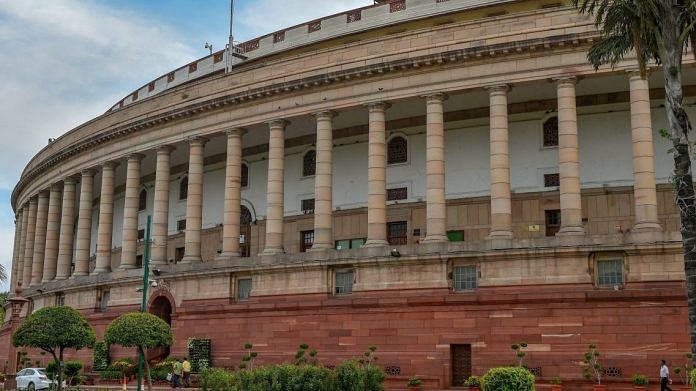Supreme Court reiterates that all candidates must declare their criminal antecedents to the Election Commission before contesting an election.
New Delhi: Expressing concern over the “increasing trend of criminalisation of politics” in the world’s largest democracy, the Supreme Court Tuesday reiterated that all candidates will have to declare their criminal antecedents to the Election Commission of India before contesting an election.
A five-judge Constitution bench, headed by Chief Justice Dipak Misra, said that citizens have a right to be informed about the antecedents of their candidates and asked Parliament to consider framing a law to ensure decriminalisation of politics.
According to the Representation of the People Act, 1951, a lawmaker is disqualified from contesting elections for six years if he or she is convicted of a crime and sentenced to more than two years in prison. The six-year period of disqualification begins the moment a politician is released from jail after completing his or her sentence.
“In the present scenario, the information given by the candidates is not widely known in the constituency and… voters really do not come to know about the antecedents. Their right to have information suffers,” the SC said in its order.
“Substantial efforts have to be undertaken to cleanse the polluted stream of politics by prohibiting people with criminal antecedents so that they do not even conceive of the idea of entering into politics,” the bench said.
The other judges on the bench included justices Rohinton Nariman, A.M. Khanwilkar, D.Y. Chandrachud and Indu Malhotra. The court had reserved its verdict on a plea seeking clarity on whether lawmakers could be disqualified when they are facing criminal charges, or only once they have been convicted of the crime.
“…despite heavy mandate prescribed by our Constitution, our Indian democracy, which is the world’s largest democracy, has seen a steady increase in the level of criminalisation that has been creeping into the Indian polity,” the court said.
The judgment comes almost seven years after the first plea was filed by NGO Public Interest Foundation.
“A time has come that Parliament must make law to ensure that persons facing serious criminal cases do not enter into the political stream,” the top court said while expressing its anguish.
Also read: For three years, only 5% of unrecognised parties filed donation reports: ADR
What court said
“Something has to be done to keep criminals at bay and prevent them from contesting elections,” the top court had said when it began hearing the matter on 9 August.
“Can we make such a law disqualifying persons against whom charges of heinous crimes have been framed by courts of law, or should we tell Parliament that by not laying down such a law, you are really giving criminals encouragement and hope? This is the question bothering us.”
While reserving its verdict on 29 August, the court asked Attorney General K.K. Venugopal whether the Election Commission of India (EC) could be permitted to withdraw election symbols allotted to recognised political parties if they fielded candidates facing criminal charges.
“The Attorney General has argued that going back from conviction to the stage of charges is not acceptable as the presumption of innocence attaches throughout,” Nariman had said.
What govt said
Venugopal submitted that while the intent was laudable, the top court could not enter the domain of Parliament, which is forbidden to the judiciary. A political party has the right to field any candidate on its allotted symbol and the court cannot deny this right, he had said.
During the course of the hearing, Venugopal had said fast-track courts to try politicians were “the only solution”.
Also read: The death penalty ordinance is yet another example of ‘lawlipop politics’
Responding to Chandrachud’s question on how rapists and murderers could become legislators, the top law officer replied that all were presumed innocent until proven guilty.
‘Lawyers elected as lawmakers can practise in courts’
The Supreme Court Tuesday also dismissed a plea seeking to ban lawmakers from practising as advocates, saying the law does not place any restrictions on them to practise in courts.
A bench comprising Chief Justice Dipak Misra and justices A.M. Khanwilkar and D.Y. Chandrachud said the relief for restricting the lawyers to practise on becoming MPs and MLAs cannot be granted as the Bar Council of India rules do not prohibit them.
With PTI inputs



